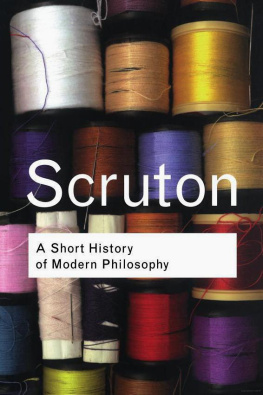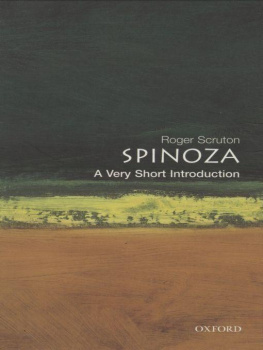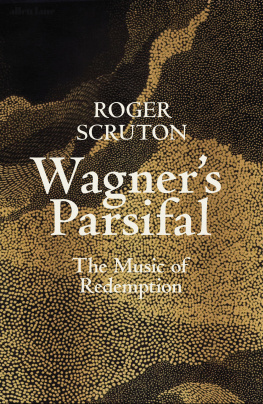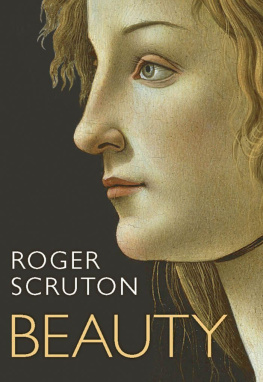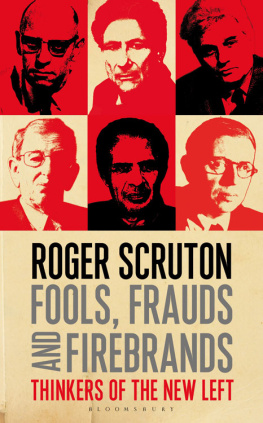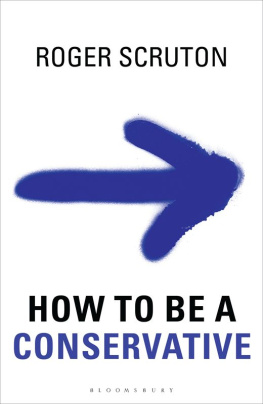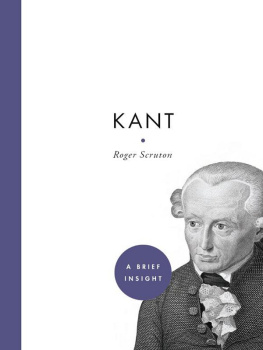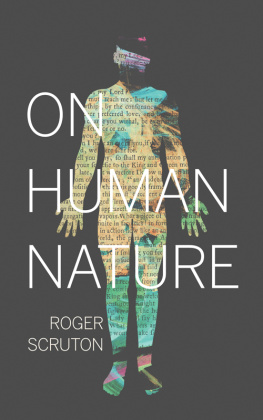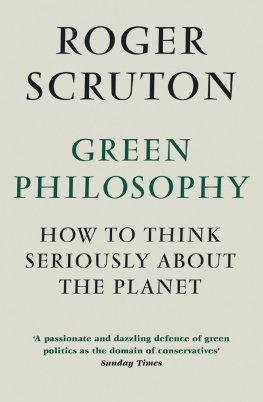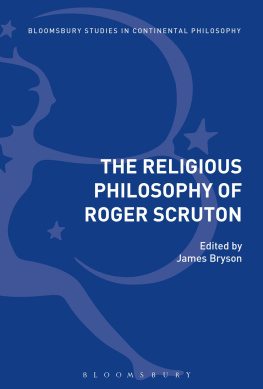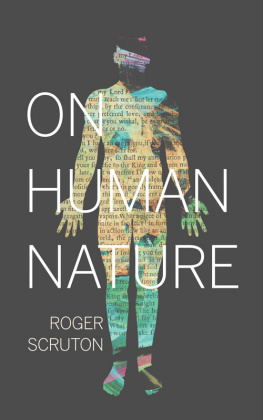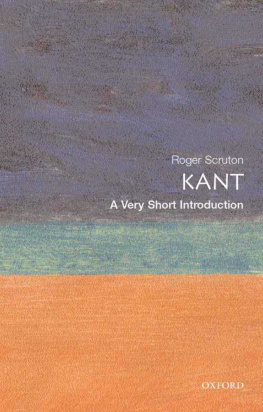A SHORT HISTORY OF MODERN PHILOSOPHY
This new edition of Roger Scruton's widely acclaimed Short History covers all the major thinkers in the Western tradition, from Descartes to Wittgenstein. It is an ideal introduction to philosophical history for all those with an interest in this fascinating subject.
In order to reflect recent debates and advances in scholarship and in response to the explosion of interest in the history of philosophy, Roger Scruton has substantially revised his book, while retaining the lucid and accessible style of the original version. He has also enlarged and updated the bibliography.
A Short History of Modern Philosophy will make excellent reading for anyone who would like to understand the principal ideas and arguments that have shaped modern philosophy.
Roger Scruton is well known as a writer, broadcaster and journalist. He has written numerous books, including The Meaning of Conservatism, Sexual Desire and Xanthippic Dialogues.
Related titles from Routledge:
Philosophy: The Basics
Nigel Warburton
Classical Modern Philosophers
Richard Schacht
The Continental Philosophy Reader
Edited by Richard Kearney and Mara Rainwater
A Dictionary of Philosophy
A.R.Lacey


Contents
P REFACE TO THE F IRST E DITION
This book provides a synthetic vision of the history of modern philosophy, from an analytical perspective. It is necessarily selective, but I hope that I have identified the principal figures, and the principal intellectual preoccupations, that have formed Western philosophy since Descartes. It is, I believe, fruitful to approach these matters from the standpoint of analytical philosophy, which in recent years has become interested in the history which it had ignored for so long, and has sought to re-establish its connections with the Western intellectual tradition. Areas which were of the greatest concern to historical philosophers aesthetics, politics, theology, the theory of the emotionshad been for some years ill-served in English and American writings; moreover, an increasing narrowness of vision, an obsession with technique and competence, had tended to replace that broad sensitivity to the human condition which is the traditional attribute of the speculative philosopher. The renewed interest in philosophical history promises to remedy those defects, and already fields such as aesthetics and political philosophy are beginning to appear, if not central, at least not wholly marginal, to a mature philosophical understanding.
I discuss analytical philosophy through the imaginative thought of its greatest exponent, Wittgenstein, and I have been obliged to pass over the many interesting, but perhaps overrated, achievements of the English and American thinkers for whom logic and language have equally been philosophys first concern. My intention has been to give a perspective that is as broad as possible, and to show the underlying continuity of argument which recent achievements help us to perceive.
In the first chapter I explain why I confine my discussion for the most part to the leading figures of post-Renaissance philosophy, and why my methods differ from those of the historian of ideas. My concern is to describe the content of philosophical conclusions and arguments, and not the contexts in which they occurred or the influences which led to them. Those with an interest in the history of ideas will wish to go back over the ground covered by this book and to explore the historical conditions from which the arguments grew, and the currents of influence which led from Hobbes to Spinoza, from Malebranche to Berkeley, from Rousseau to Kant, and from Schopenhauer to Wittgenstein. The classifications of schools and arguments that I have adopted may then begin to appear, if not arbitrary, at least very much matters of philosophical convenience.
It is necessary to mention the peculiarities of the standpoint from which this book is written. Although it has taken time for analytical philosophy to emerge from its cultural isolation, it seems to me that the light that it has begun to cast on the history of philosophy is greater than any that was cast by the compendious surveys which appeared during the hundred years preceding its development. A new style of philosophical history has emerged, which attempts to discover arguments which might be put forward and accepted, not just at the time when they were first announced, but at any time. To ask whether it is possible now to believe what Leibniz wrote is to submit ones interpretation to a severe intellectual discipline. It becomes necessary to discover what Leibniz really meant by his conclusions, and what arguments justified, or might justify, his belief in them. It becomes necessary to translate the thought of previous philosophers from the jargon that might obscure its meaning, to remove from it all that is parochial and time-bound, and to present it in the idiom which modern people would use in the expression of their own most serious beliefs. In the bibliography to this work the reader will find references to recent studies in the history of philosophy which, while they may lack the range and the cultural sophistication of earlier studies, seem to me to have changed irreversibly the way in which philosophical history now appears, precisely by looking to the past for answers to present questions. Just as the discovery of the new logic enabled philosophers to understand the researches of medieval logicians for the first time, so has the new philosophy of language and mind made the arguments of Kant intelligible in a way that they were not intelligible to those whom Kant first influenced.
It should not be thought, however, that the analytical version of the history of philosophy bears no relation to the history of philosophy as it is seen by thinkers from other schools. The interpretation that I offer is one that would be acceptable, in its broad outlines, to many phenomenologists. Like the phenomenologists I see the main current in modern philosophy as springing from the Cartesian theory of the subject, and from the consequent divorce between subject and object, between the realm of certainty and the realm of doubt. I believe that this current runs through epistemology, metaphysics, ethics and political philosophy, throughout the period that I survey. I also believe that Wittgensteins detailed demonstration of the untenability of the Cartesian vision has effectively brought a period of philosophical history to an end. However, the arguments of Wittgenstein to which I refer also, I believe, destroy the credibility of phenomenology.
Needless to say, because this book is as brief as I could make it, it can serve only as a guide; my task will have been accomplished if it helps the reader to understand and enjoy the works of the philosophers that I discuss.
P REFACE TO THE S ECOND E DITION
During the fifteen years since this book was first published, analytical philosophers have devoted much of their attention to philosophical history. Although the broad outlines of the subject remain the same, the details have inevitably changed. In certain casesnotably that of Hume the traditional understanding of a philosophers aims and arguments has been entirely revised. And thinkers whose work had been for many years dismissed, or passed over with a cursory and disapproving glance, have been rehabilitatedFichte and Reid being prominent examples.
Although this recent scholarship lies beyond the scope of this short introduction, it has necessitated considerable revisions of the text and a much fuller bibliography than was provided in the first edition. It goes without saying that a short introduction is bound to be controversial. Nevertheless I have tried to represent accurately, and in the minimum space, what the great modern philosophers have thought, and to show why they are still important.
Next page
